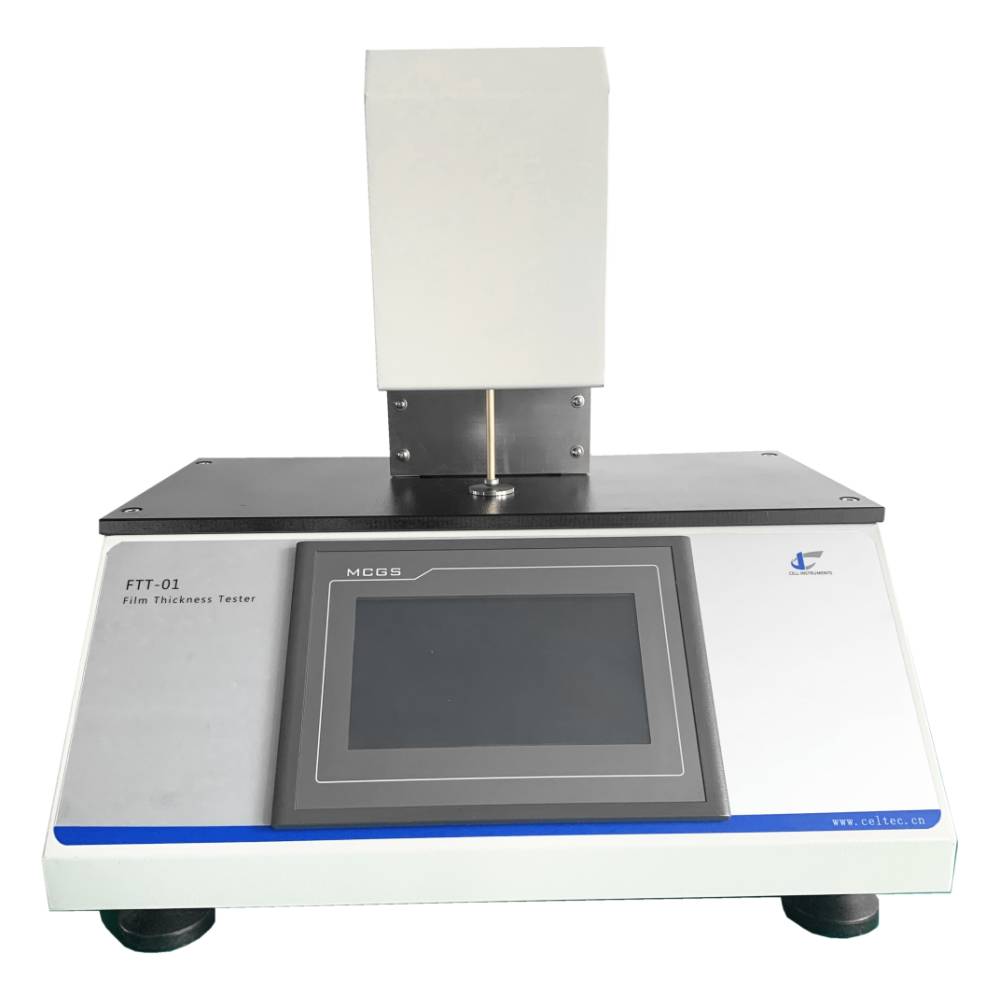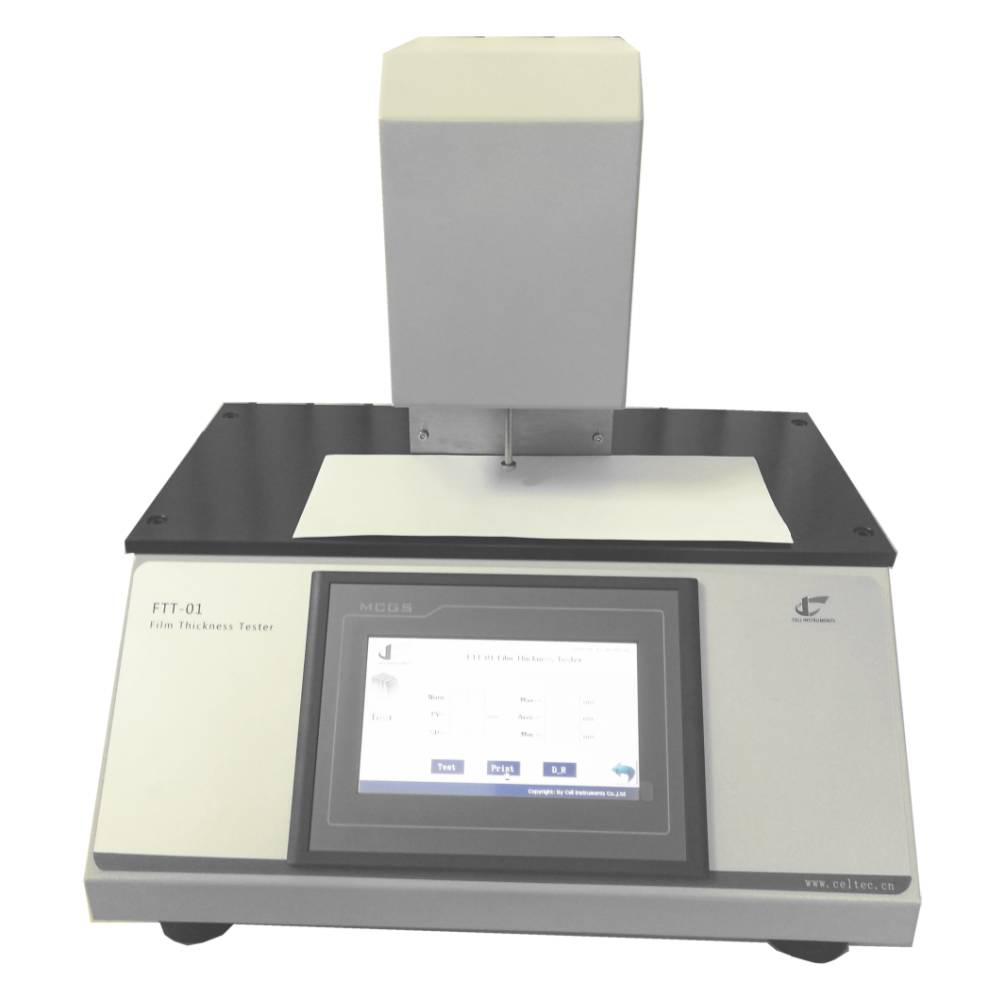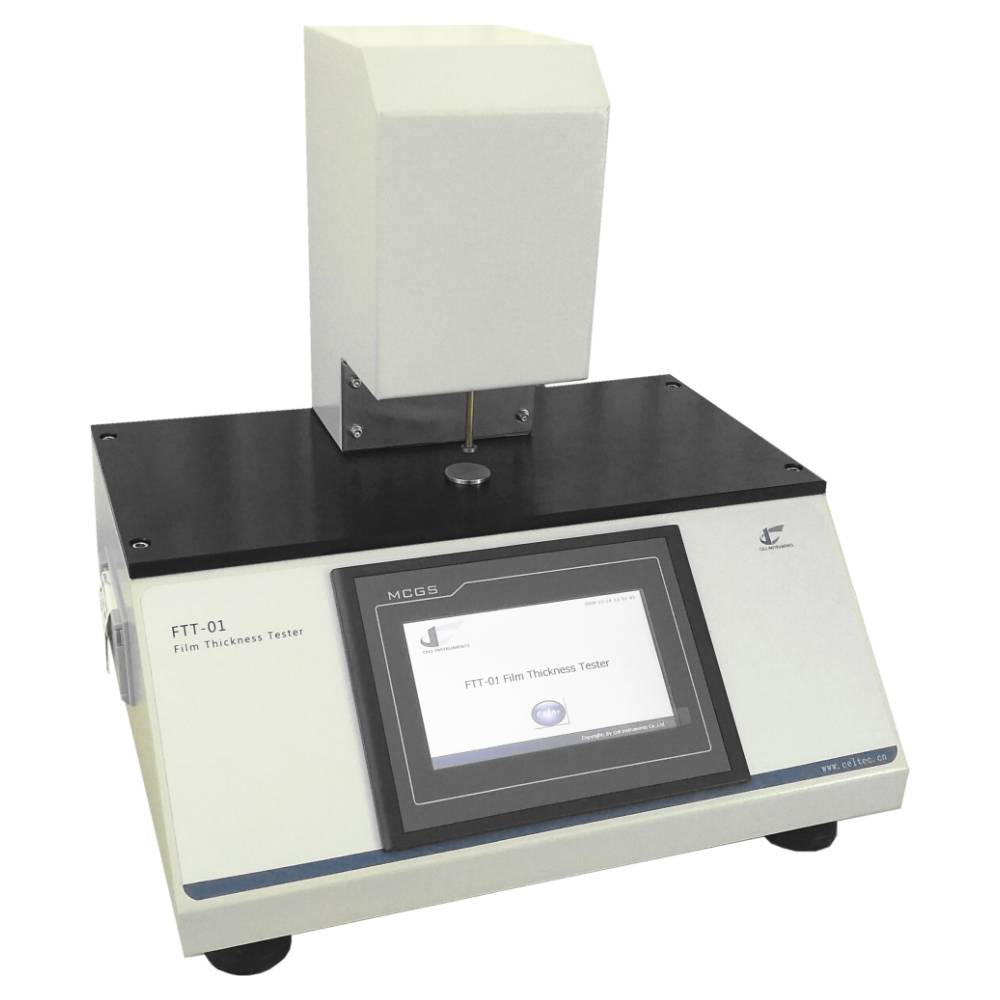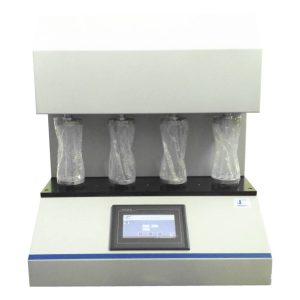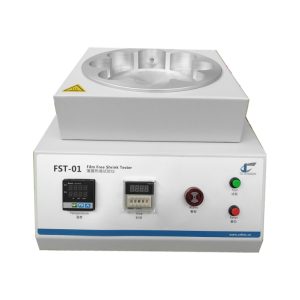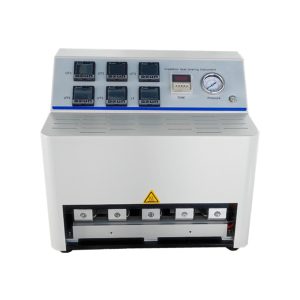The Touch Thickness Tester is an advanced measurement instrument designed to provide accurate and reliable thickness readings for a variety of materials, including plastic films, textiles, paper, cardboard, foils, and other flexible materials. Thickness plays a critical role in determining the performance, quality, and compliance of these materials in industries such as packaging, pharmaceuticals, medical devices, textiles, and more. Maintaining consistent material thickness ensures product quality, prevents defects, and meets regulatory requirements, making it an essential tool for quality control in manufacturing processes.
Whether you’re working with plastic films in packaging, textiles in the fashion industry, or paper products in the printing sector, the Touch Thickness Tester helps businesses maintain uniformity, reduce waste, and ensure the materials meet stringent industry standards.
Standards for Thickness Testing
The Touch Thickness Tester is built to comply with a variety of international standards, ensuring accurate and standardized measurements across different material types and industries.
ASTM D374-99: Standard Test Methods for Thickness of Solid Electrical Insulation
This standard is used for measuring the thickness of electrical insulation materials. Precise thickness measurements are critical for the electrical industry to ensure proper insulation, which protects electrical components and prevents damage. The Touch Thickness Tester meets ASTM D374 requirements, ensuring reliable and consistent measurements for electrical insulation products.
ASTM D1777: Standard Test Method for Thickness of Textile Materials
The ASTM D1777 standard applies to textiles and fabric materials. Accurate thickness measurement is essential for the textile industry to evaluate fabric performance, quality, and durability. The Touch Thickness Tester provides precise readings that help manufacturers meet industry standards for thickness, ensuring product quality and functionality.
ISO 3034:2011: Corrugated Fiberboard – Determination of Single Sheet Thickness
This standard is used for measuring the thickness of corrugated fiberboard, a material widely used in packaging. By meeting ISO 3034:2011 standards, the Touch Thickness Tester helps packaging manufacturers ensure that their fiberboard materials meet the required thickness specifications, providing durability and protection for packaged goods.
ISO 534-2011: Paper and Board – Determination of Thickness, Density, and Specific Volume
ISO 534-2011 is used to measure the thickness of paper and board materials. This standard is essential for the paper industry to maintain product consistency, control material usage, and meet customer expectations. The Touch Thickness Tester supports ISO 534-2011, ensuring accurate thickness measurements for paper and board materials, critical for both quality control and manufacturing efficiency.
ISO 4593: Plastics; Film and Sheeting; Determination of Thickness by Mechanical Scanning
ISO 4593 defines the standard for measuring the thickness of plastic films and sheeting. Precise thickness measurements are crucial for plastic manufacturers, particularly in packaging applications, to ensure product performance and compliance with regulatory standards. The Touch Thickness Tester meets ISO 4593 requirements, ensuring reliable thickness readings for plastic films used in a variety of industries.
Test Methods and Application
The Touch Thickness Tester utilizes a mechanical scanning technique to measure the thickness of a wide range of materials. Here’s how the process works:
- Sample Placement: The material sample is placed on the instrument’s base, ensuring it is positioned correctly for accurate measurement.
- Presser Foot Mechanism: A weighted presser foot is gently lowered onto the material. The tester measures the displacement or gap between the presser foot and the base, providing an accurate measurement of the specimen’s thickness.
- Material Types: The tester is versatile and can measure the thickness of materials like plastic films, textiles, paper, foils, fabrics, and membranes. Whether you’re testing packaging materials, medical device packaging, or textiles, the Touch Thickness Tester ensures precise results.
This method is particularly valuable for quality control processes in industries where material consistency is vital, such as packaging, food and beverage, pharmaceuticals, and textiles. By providing accurate and repeatable measurements, the Touch Thickness Tester helps businesses identify thickness variations that could lead to defects, regulatory non-compliance, or higher production costs.
Technical Features and Functionality
The Touch Thickness Tester is designed for ease of use and precision, with several advanced features that ensure efficient operation and accurate results:
- PLC-Controlled Operation: The device is controlled by a programmable logic controller (PLC), which is integrated with an intuitive HMI touch screen interface for easy operation.
- Automatic Presser Foot Lifting: This feature ensures that the presser foot lifts automatically after each measurement, reducing the need for manual intervention and maintaining consistency in testing.
- Real-Time Data Display: The tester displays real-time measurements, including maximum, minimum, average, and standard deviation values, allowing users to assess material consistency and performance instantly.
- Data Storage and Micro-Printing: The tester can store test results and print reports, facilitating traceability and quality control documentation for audits or records.
- RS232 Port (Optional): The device comes with an RS232 port that allows for easy integration with data analysis software, enhancing the ability to manage and analyze test results.
- Manual and Automatic Sample Feeding Options (Optional): For increased efficiency in high-volume testing environments, both manual and automatic sample feeding options are available.
Main Parameters and Specifications
| Test Range | 0~2mm(Customization available) |
| Resolution | 0.1 μm |
| Standard Measure Head | Hemispherical type |
| Optional Measure Head (flat foot) | 50 mm² , 17.5±1 KPa (for film) 200 mm² , 50±1 KPa (for paper) |
| Power | AC 110~220V |
Why Choose the Touch Thickness Tester?
The Touch Thickness Tester offers numerous benefits for businesses across industries such as packaging, textiles, medical devices, and more. Here are just a few reasons to choose this instrument:
- Versatility: It can measure the thickness of various materials, including plastic films, textiles, paper, and corrugated fiberboard.
- Compliance with Standards: It meets key industry standards such as ASTM D374, ASTM D1777, ISO 3034:2011, ISO 534-2011, and ISO 4593, ensuring your measurements are accurate and regulatory-compliant.
- Efficiency and Accuracy: With its advanced features like automatic presser foot lifting, real-time data display, and high-resolution measurements, the Touch Thickness Tester ensures reliable and repeatable results.
- Data Management: The option to store and print test results makes it easy to maintain records for quality control, audits, and traceability.
FAQs (Frequently Asked Questions)
- What materials can the Touch Thickness Tester measure?
- The tester can measure the thickness of materials such as plastic films, textiles, paper, corrugated fiberboard, foils, and membranes.
- What is the measurement range of the Touch Thickness Tester?
- The standard test range is from 0 to 2mm, with customization available for specific material types or applications.
- How does the Touch Thickness Tester ensure accuracy?
- The tester uses a mechanical scanning technique with a resolution of 0.1 μm to ensure precise and accurate thickness measurements for various materials.
- Can the Touch Thickness Tester be integrated with other software systems?
- Yes, the tester includes an RS232 port for optional integration with software for enhanced data management and analysis.
- What standards does the Touch Thickness Tester comply with?
- The tester supports ASTM D374, ASTM D1777, ISO 3034:2011, ISO 534-2011, and ISO 4593, ensuring compliance with industry standards for various materials.

